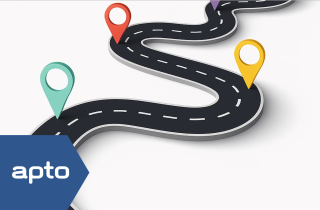
There are many installations of Adobe LiveCycle in existence that do not receive the love of regular updates and maintenance. This can become problematic since Adobe has a fairly aggressive time table when it comes to retiring obsolete versions of its LiveCycle product. Furthermore, the cost of upgrading your system can seem daunting given that installing even a service pack is not a trivial exercise.
The problem seems to magnify when it comes to making the leap from LiveCycle ES4 to AEM Forms.
It’s a new product, right?
Fortunately, the story isn’t as daunting as it might seem. AEM Forms is a big product and its capabilities far exceed those of LiveCycle, but part of it isa LiveCycle server. You do not have to spend an enormous number of man hours rewriting your LiveCycle applications and code in a completely new technology. As a rule, LiveCycle ES3 and ES4 applications can be ported more or less “as-is”, but there are some provisos, which I will discuss below.
Audit
It is important to have your current system audited to find out which of the provisos apply to you. You may wish to do this anyway, even if you are not planning an upgrade. Long running LiveCycle applications tend to be treated as black boxes that just sit in the corner doing their thing once all the original staff responsible for the implementation have left.
LiveCycle applications (including forms, processes and even Java code written against the LiveCycle API) that work on LiveCycle ES3 or ES4 will still work on the JEE edition of AEM Forms – probably. Of course, that does not mean that you should just move everything across and hope for the best: it is important to perform full regression testing on your system running on AEM Forms. There are somechanges to the product, for example to improve security and we have discovered regressions in some components that had to be patched by Adobe.
Custom Components
Custom components may pose a particular risk. Custom components are fairly common, but it is also fairly common for the staff that run the system to forget about their existence, especially if the installation is quite old. Custom components should at least be recompiled against the current version of the SDK (assuming you still have the source code!) and should obviously be retested for regressions.
APIs
Although the LiveCycle APIs have remained remarkably stable for many years, even across the transition to AEM Forms, Adobe does regularly deprecate various parts of the suite. Your audit should identify all deprecated APIs and components that you use and you should make plans to replace them with supported equivalents. It’s unlikely that they will stop working, but if you do have problems involving them, you won’t be able to get support from Adobe.
Workspace
The Workspace application is the biggest problem with respect to deprecation. Apart from the fact that you cannot get support from Adobe for it, it uses Flash technology which is becoming very unpopular with browser developers and Adobe itself. At some point in the not too distant future, its continued use is going to be unsustainable due to security concerns and lack of support from browser vendors. Its replacement in AEM Forms is not really a finished product albeit it uses more modern technology and adapts better to modern devices like tablets. However, it provides a good base for customisation to your particular needs. In fact, we have found it is easier to apply customisations to than the old Flash Workspace.
Having upgraded to AEM Forms, there is a lot more functionality available to you to bring your applications into the modern world of mobile and HTML5 based browsers. A future part of this series will discuss the options available to you.
In summary:
- Upgrading to AEM Forms seems daunting but is not as difficult as it might appear
- Much of your application can be transferred to AEM Forms with no new development work
- Have your system audited so you fully understand what’s in it
- You need to plan to identify deprecations and regressions
- You need a strategy to replace deprecated technologies like the Flash workspace application
Extended Product Support for Livecycle ends March 2020 find out how we can help contact us
See how we can build your digital capability,
call us on +44(0)845 226 3351 or send us an email…



